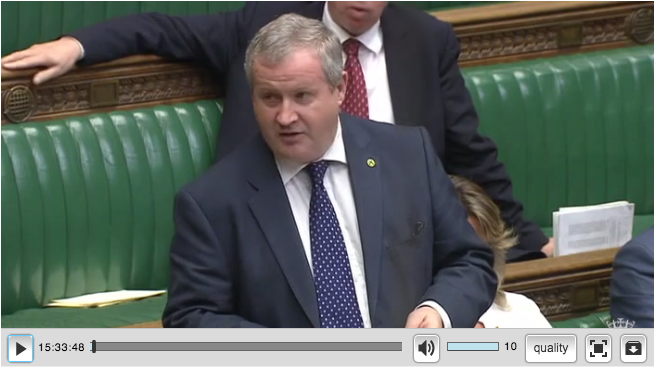Debate on Quantitative Easing in UK Parliament (Video)

An important debate took place in the UK Parliament on Thursday 15th September 2016. The House of Commons debated for the first time since the new £70bn Quantitative Easing programme began last month.
This debate was scheduled by the Backbench Business Committee, following a representation from Ian Blackford, Scottish National Party MP for Ross, Skye and Lochaber.

The debate was opened by Ian Blackford MP. He proposed that the House call on the Bank of England to provide a detailed analysis of the effect of its quantitative easing programme on the wider economy. He emphasised that QE has exacerbated wealth inequality:
“If we look at the growth in financial wealth, we can see the contrasting experience of those who have benefited from this wealth effect at a time that real wage growth has stagnated. We know from an analysis published by the Bank of England in 2013 that QE had boosted asset prices and that the top 5% of households owned 40% of those assets. The analysis from the Bank of England at that time estimated that the top 5% of households had become richer to the tune of £128,000 on average. QE has demonstrably exacerbated wealth disparity between rich and poor.“
Steve Baker MP commented on the insufficient understanding of QE and its importance by the members of Parliament,
“One of the great tragedies of this subject [Quantitative Easing] is that, although we might think it is one of the most important issues of our time, it is not well understood, as can be seen from the attendance in the Chamber. Although the public feel the effects of it widely, their representatives are not as well equipped to participate in debates on the subject as they might be.”
Helen Goodman MP made some excellent comments on this:
“Were the Chancellor of the Exchequer to stand up at the Dispatch Box and say, in the Budget or the autumn statement, “I am giving £85,000 to the richest people in the country”, I think that even members on the government benches would be alarmed and concerned, and perhaps even slightly rebellious. But because it is being done by the Bank of England and is rather hidden, we are not seeing the same level of concern, and we need to see the same level of concern.”
Labour frontbencher Peter Dowd confirmed that his party supports the calls for an investigation into the effects of QE, including on inequality,
“We would welcome any further study, to be conducted by the Government or others, on the effectiveness of unconventional monetary policy, so we support the motion.”
A number of other MPs contributed to the debate, including Roger Mullin and George Kerevan. And the Economic Secretary to the Treasury Simon Kirby responded on behalf of the Government.
Ian Blackford MP closed the debate with these words:
“We have had a well-informed, fascinating debate. I hope that this is the start of something whereby we have signalled to the Bank of England, which I am sure will be getting a report of our proceedings, that we wish to see a more fundamental analysis of the outcomes of the QE programme. There has been a very clear message to the Government—as shown by all the actions that we have seen internationally, with the words from the OECD and even from the US authorities—that there has to be a linkage between monetary and fiscal policy. A number of Members have delivered a very strong message that we really have to make sure that we deal with wealth inequality. I look forward to carrying on this debate, and look forward to the Government addressing the issue in the autumn statement.”
You can read the transcript of the whole debate here.